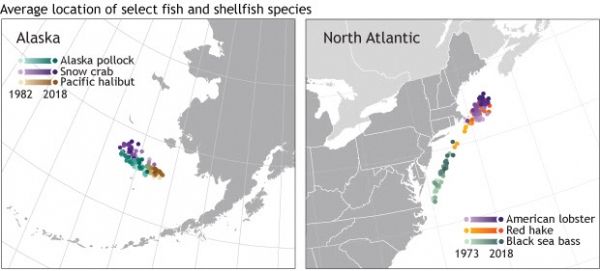The American blue economy, which are resources and services provided by the oceans, contributed about $373 billion to the economy in 2018, and fisheries play a large role in that. Climate change, however, threatens commercial and recreational fisheries; changes in water temperature can affect the environments where fish, shellfish, and other marine species live, and cause them to seek new waters.
A new indicator, jointly developed by the EPA and NOAA, shows that along the coasts, marine species are shifting northward or to deeper waters, and as smaller prey species relocate, predator species may follow.
The U.S. Global Change Research Program (USGCRP), which facilitates coordination of Earth science research across 13 federal member agencies, has published this marine species distribution indicator using NOAA data. The graphs show the annual change in latitude and depth of 140 marine species along the northeastern U.S. coast and in the eastern Bering Sea. Changes in geographic distribution have been aggregated across all 140 species.
Continue reading at NOAA Climate
Image via NOAA Climate


